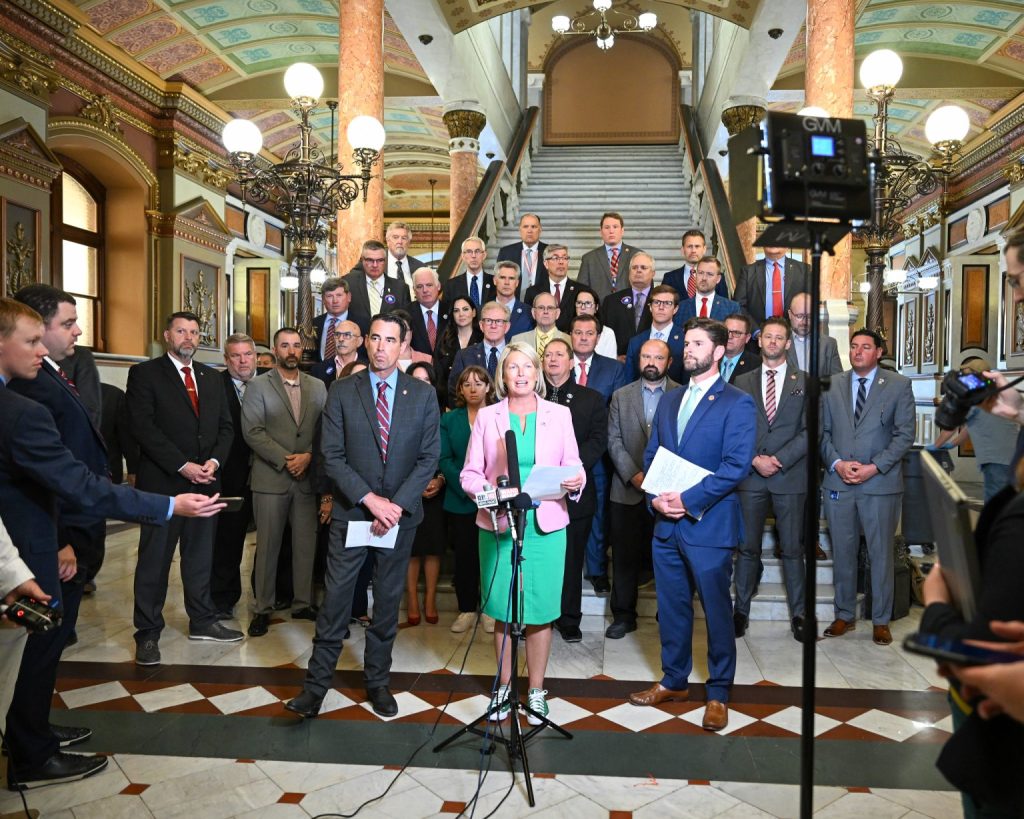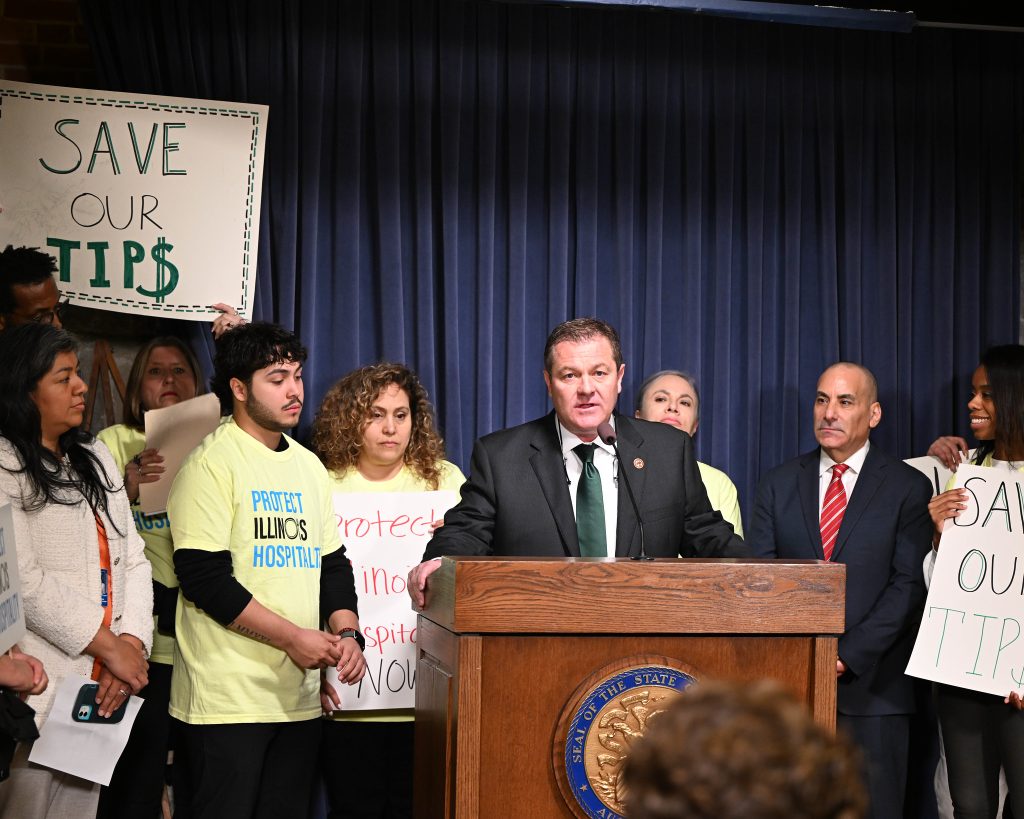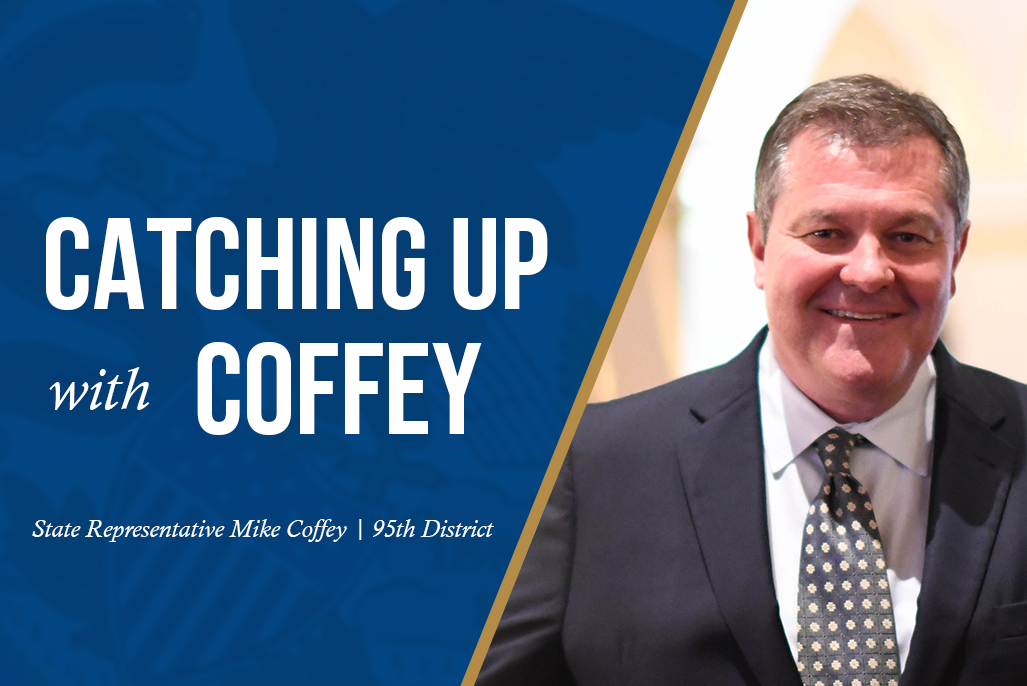ELECTIONS
Judge Rebukes Democrats’ Attempt at Election Interference. Democrats threw quite a curveball in early May during the 2024 Spring Legislative Session, abruptly gutting a Senate child welfare bill and in less than 48 hours enacting legislation that changed Illinois election laws during the middle of an election cycle. The new bill changed the rules on how candidates for public office can get on the ballot for the upcoming November 2024 election.
The new law effectively ended the practice of ‘slating’ immediately. Under current election laws, political parties that did not have a candidate run in the March primary election had until June 3 to nominate or ‘slate’ a candidate to be put on the November ballot, provided that the candidate had turned in the proper nomination papers by June 3 to the State Board of Elections.
Democrats’ hasty actions pointed to keeping several Republicans who were in the process of collecting nomination signatures off of the November ballot, in particular in one District in the Metro East where a Republican candidate that had not yet filed paperwork was seen as a legitimate challenger to his Democratic opponent. The new law retroactively required that candidates had to run in the March primary to be eligible for the November general election ballot; or run as a third-party candidate.
House and Senate Republicans immediately called the changing of the rules midstream unconstitutional. All House and Senate Republicans voted ‘present’ on the legislation, which had a total of seven Democrat dissenters along with a handful that did not vote.

“We don’t understand the sense of urgency right now, unless the end goal is to stifle the democratic process through the changes on slating candidates,” House Minority Leader Tony McCombie stated.
On May 10, the Liberty Justice Center filed a lawsuit against the Illinois State Board of Elections, alleging the violation of Illinoisans’ constitutional rights to vote by repealing a campaign law in the middle of an election cycle. The lawsuit represented multiple prospective Republican candidates who had plans to file nomination papers within the 75-day window allowed from the primary date, which this year called for the June 3 deadline.
On June 5, Sangamon County Circuit Court Judge Gail Noll granted a permanent injunction in the matter, blocking enforcement of the slating repeal for the current election cycle. The court ruled that it was unconstitutional to restrict ballot access, thereby restricting voter rights, under the law as it existed prior to May 3.
The ruling pertained to the current election cycle only, as Judge Noll indicated in her 12-page report. “The General Assembly could make the revisions effective for the next election, rather than in the midst of the current election,” Noll wrote. “Changing the rules to ballot access in the midst of an election cycle removes certainty from the election process and is not necessary to achieve the legislation’s proffered goal.”
It is not known at this time if the State Board of Elections or Attorney General Kwame Raoul will appeal Judge Noll’s decision.
FIREARMS
Illinois’ ban on ‘bump stocks’ remains in place despite U.S. Supreme Court decision. An Illinois law banning the sale and use of “bump stocks” and other devices that increase the firing power of semiautomatic weapons remains in place, at least for now, despite a U.S. Supreme Court decision Friday striking down a federal ban on such items.
“Illinois law is not affected by the decision,” a spokesperson for Attorney General Kwame Raoul said in an email statement Friday.
Meanwhile, however, advocates on both sides of the gun control debate in the United States are anxiously waiting to learn whether the high court will hear a broader constitutional challenge to the state’s 2023 assault weapons ban, which includes the state-level ban on bump stocks. An announcement on that appeal could come at any time in the next several days. […]
The Illinois bump stock ban was enacted as part of the state’s overall ban on assault-style weapons, which came in response to another mass shooting, this one at a Fourth of July parade in Highland Park in 2022.
The law bans a long list of firearms defined as “assault weapons,” as well as large-capacity magazines and various kinds of attachments. Those include attachments that “increase the rate of fire of a semiautomatic firearm above the standard rate of fire” for a weapon not equipped with such a device.
That law was passed during a special lame duck session of the General Assembly in January 2023, just six months after the Highland Park shooting. Pritzker signed it into law within hours of its final passage, making Illinois the ninth state in the nation at the time to enact such a ban. Washington became the 10th state a few months later.
Read more from Capitol News Illinois.
NEW LAWS
Several new Illinois laws go into effect on July 1. Several new laws go into effect on July 1 in Illinois, many of which were controversial when adopted.
Tipped workers in Chicago who make less than minimum wage will see an increase in how much they make. Chicago is the largest city in the country to voluntarily phase out subminimum wages.

“This legislation would cause turmoil in the service industry, causing job creators to cut good-paying positions and putting these businesses at risk of closure,” Rep. Coffey said. “Ultimately, consumers who are already feeling the higher cost of living in this state will have to pay more to offset the higher labor costs.”
Sam Toia, president of the Illinois Restaurant Association, was instrumental in making sure the measure didn’t go statewide.
“The practical impact of this legislation is dire for many Illinois operators,” said Toia. “If this legislation becomes law, here is what we can expect; layoffs for servers, bartenders, bussers and runners, fewer hours for servers, and higher costs for the consumer.”
Undocumented immigrants will be able to get an Illinois driver’s license starting July 1. This will replace the current Temporary Visitor’s Driver’s License (TVDL) that over 300,000 people in Illinois currently have.
“They know and the officer knows that this form of ID essentially serves as an admission of being undocumented or having a temporary visa,” said Secretary of State Alexi Giannoulias during a June news conference. “TVDLs have become the ‘Scarlet Letter’ of someone’s immigration status and sadly exposes them to discrimination or immigration enforcement.”
Undocumented immigrants must still pass a driving test, have valid insurance, provide identification documents and prove Illinois residency for at least one year.
Read more from The Center Square.
HEAT SAFETY TIPS
Stay safe in extreme heat. High temperatures pose a threat across Illinois this week. Here are a few tips to keep in mind to stay safe in extreme heat:
Stay out of the sun. If you must be in the sun, wear sunscreen (at least SPF 15) and a wide-brimmed hat. Stay in the shade or under awnings as much as possible.
Avoid overexertion and strenuous outdoor activities.
Wear lightweight, light-colored, loose-fitting clothes that cover as much skin as possible to prevent sunburn.
Consume plenty of non-alcoholic, non-caffeinated fluids, even if you don’t feel thirsty. Water, diluted juices, and electrolyte solutions are best. Stay away from carbonated drinks.
Keep lights in your home low or off, keep shades drawn, and avoid using the oven.
Keep rooms well-ventilated with air conditioners and fans. Keep your windows open if you don’t have air conditioning or a fan. Note: Fans will not prevent heat-related illness when the temperature is in the high 90s.
Take advantage of cooling centers, public pools, and air-conditioned stores and malls during periods of extreme heat. Exposure to air conditioning for even a few hours a day will reduce the risk for heat-related illness.
Find more information at https://ready.illinois.gov/hazards/extremetempshot.html
Join Rep. Coffey at Scoop Du Jour in Chatham June 29th!

